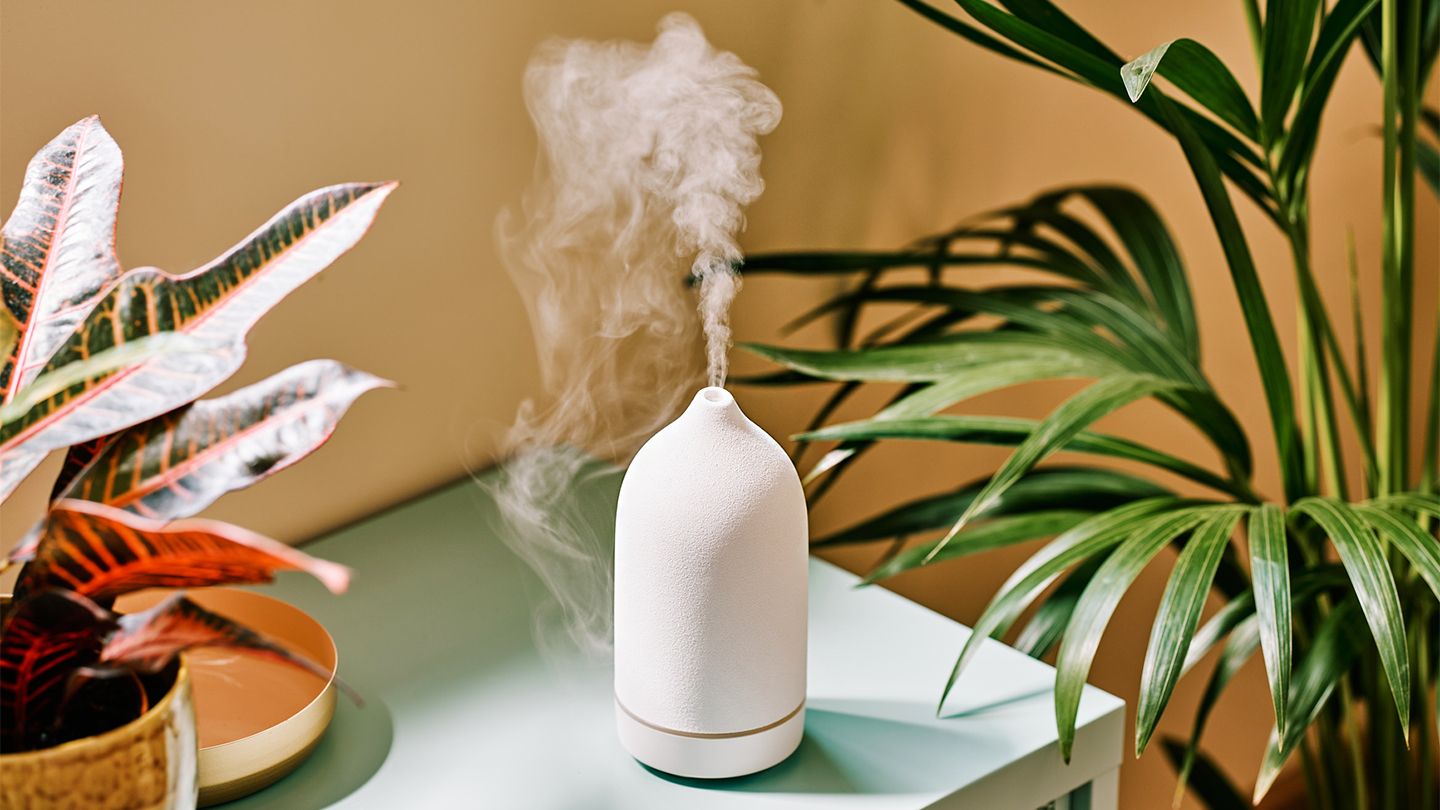Physical Address
304 North Cardinal St.
Dorchester Center, MA 02124

Atopic Dermatitis worsens during winter due to dry skin, low humidity, and frequent temperature changes. During winter, Atopic Dermatitis becomes more severe because of factors such as dry air and changing temperatures which aggravate dry skin, leading to increased itching, redness, and inflammation.
This condition, also known as eczema, is a chronic skin disorder characterized by itchy and inflamed patches on the skin. It affects people of all ages and can cause significant discomfort and frustration. While there is no cure for Atopic Dermatitis, understanding the triggers and implementing proper skincare routines can help manage the condition effectively.
We will explore the impact of winter on Atopic Dermatitis and discuss some practical tips to alleviate its symptoms during the colder months.
Atopic Dermatitis in winter can cause dry, itchy, and inflamed skin. Understanding this condition is crucial for managing symptoms during the colder months.
Atopic Dermatitis, also known as eczema, is a chronic, inflammatory skin condition that affects millions of people worldwide. It is characterized by dry, itchy, red, and scaly patches on the skin that can be quite discomforting. Atopic Dermatitis commonly appears in early childhood but can persist into adulthood. People with this condition often experience flare-ups, where their symptoms worsen, especially during certain seasons like winter.
The exact cause of Atopic Dermatitis is not fully understood, but it is believed to be a combination of genetic and environmental factors. Researchers have found that individuals with a family history of allergies or asthma are more prone to developing Atopic Dermatitis. Additionally, certain triggers such as irritants, allergens, temperature changes, and stress can exacerbate the condition. Winter, with its cold temperatures and dry air, poses specific challenges for those with Atopic Dermatitis.
During winter, the cold weather causes a decrease in humidity levels, leading to dry and dehydrated skin. This dryness can further worsen the symptoms of Atopic Dermatitis, making the skin even more susceptible to irritation and itchiness. Moreover, the constant exposure to indoor heating systems can also contribute to dry skin, exacerbating the condition.
To effectively manage Atopic Dermatitis during winter, it is important to keep the skin moisturized and protected. Use a rich and non-irritating moisturizer to lock in moisture and prevent excessive dryness. In addition, avoid hot showers and opt for lukewarm water instead, as hot water can strip the skin of its natural oils. Wearing soft and breathable fabrics, such as cotton, can also help reduce irritation caused by friction.
Furthermore, it is crucial to identify and avoid triggers that may worsen the symptoms of Atopic Dermatitis. This may include certain cosmetics, perfumes, and detergents that contain harsh chemicals. Additionally, be mindful of your clothing choices, as wool and synthetic fabrics can be irritating to the skin.
In conclusion, understanding Atopic Dermatitis is essential to effectively manage and alleviate its symptoms. By taking preventive measures, such as keeping the skin moisturized and avoiding triggers, individuals with Atopic Dermatitis can minimize the impact of the condition, particularly during the winter season. Remember, consulting with a dermatologist can provide personalized guidance and recommendations specific to your condition.
Winter can be a challenging season for individuals with atopic dermatitis, as the cold temperatures and dry air can exacerbate symptoms and lead to uncomfortable flare-ups. Additionally, indoor heating and hot showers, which are common in winter, can further contribute to skin dryness and irritation. In this article, we will explore the common challenges that individuals with atopic dermatitis face during the winter months and provide tips for managing these issues effectively.
Cold and dry air is a notorious trigger for atopic dermatitis flare-ups. The low humidity during winter robs the skin of its natural moisture, leading to increased dryness, itching, and potential cracking. It is essential to protect the skin from this harsh environment to prevent worsening of symptoms.
Indoor heating systems are designed to keep us warm and cozy during winter, but they can negatively impact the skin. Heating systems strip the air of moisture, creating an environment that is even drier than the already arid winter air. Spending extended periods in heated rooms can dehydrate the skin and worsen atopic dermatitis symptoms.
As temperatures drop outside, many of us seek solace in hot showers. However, for individuals with atopic dermatitis, hot showers can be detrimental. The hot water strips away the skin’s natural oils, causing further dryness and irritation. It is crucial to keep showers lukewarm and limit their duration to minimize the potential damage to the skin.
By being aware of these common winter challenges and taking proactive measures, individuals with atopic dermatitis can effectively manage their symptoms and minimize discomfort during the colder months. Implementing a consistent skincare routine, moisturizing frequently, and using gentler cleansers can help maintain the skin’s hydration and protect it from external irritants. Additionally, wearing breathable fabrics and layering to regulate body temperature can reduce the risk of overheating and perspiration, which can trigger flare-ups.
In the next section, we will delve into the importance of moisturizing and provide recommended products that can help soothe and hydrate atopic dermatitis-prone skin during winter.
Combat winter flare-ups of atopic dermatitis with an effective skincare routine. Keep your skin hydrated, protect it from harsh weather, and choose products specifically designed for sensitive skin.
When the winter season arrives, individuals with atopic dermatitis often experience increased dryness, itching, and discomfort. Implementing a proper skincare routine becomes essential to manage these symptoms and promote skin health during the colder months. By focusing on three key areas – gentle cleansing, moisturizing strategies, and choosing the right products – you can effectively combat the effects of winter on your skin.
Gentle cleansing is crucial for individuals with atopic dermatitis, especially in winter, as harsh soaps and hot water can further strip the skin of its natural oils, leading to dryness and irritation. Consider the following tips when establishing your winter skincare routine:
1. Opt for mild, fragrance-free cleansers that are specifically formulated for sensitive skin. This helps minimize potential irritants and allergens that could worsen atopic dermatitis symptoms.
2. Avoid using hot water, as it can dehydrate and irritate the skin. Instead, wash your face and body with lukewarm water to maintain your skin’s moisture balance.
3. Pat your skin dry gently with a soft towel, leaving some moisture on your skin before applying moisturizer. This locks in hydration and prevents further moisture loss.
Moisturization is key to managing the dryness and itching associated with atopic dermatitis in winter. Here are some effective moisturizing strategies to include in your winter skincare routine:
1. Moisturize immediately after bathing or showering, while your skin is still damp. This helps seal in moisture and prevents dryness.
2. Choose emollient-rich moisturizers that contain ingredients like ceramides, hyaluronic acid, or glycerin. These substances help replenish and retain moisture, creating a protective barrier on the skin.
3. Consider using a humidifier indoors to add moisture to the air and prevent excessive dryness.
Selecting the right skin care products is essential for individuals with atopic dermatitis, as certain ingredients can trigger flare-ups or worsen existing symptoms. Follow these guidelines when picking products for your winter skincare routine:
1. Read product labels carefully and avoid products that contain common irritants such as fragrances, dyes, sulfates, and alcohol.
2. Opt for hypoallergenic and non-comedogenic products, as they are less likely to cause irritation or clog pores.
3. Consult with a dermatologist to determine which over-the-counter or prescription products are most suitable for your skin condition.
By adhering to a winter skincare routine that emphasizes gentle cleansing, moisturizing strategies, and the right choice of products, you can effectively manage atopic dermatitis symptoms during the colder months. Remember, consistency and patience are key, as it may take time to find the perfect routine that works for you.

Credit: www.northwell.edu
Atopic Dermatitis, also known as eczema, can worsen during the winter months when the air is dry and cold. It is essential to make certain lifestyle changes to keep the skin hydrated and prevent flare-ups. Here are a few effective tips to combat winter dryness and manage Atopic Dermatitis:
One of the key ways to combat winter dryness is by maintaining optimal moisture levels in your indoor environment. Follow these humidification tips to promote healthy skin:
Identifying and avoiding triggers that can worsen Atopic Dermatitis during winter is crucial. Here are some measures you can take:
What you consume can impact the health of your skin. Pay attention to your diet and consider these dietary considerations:
Implementing these lifestyle changes, you can effectively combat winter dryness associated with Atopic Dermatitis. Remember to consult with a dermatologist to develop a personalized plan that works best for your specific condition.
Find relief from winter-induced atopic dermatitis with expert tips and effective remedies that address dry and itchy skin. Discover strategies to prevent flare-ups and soothe discomfort during the colder months.
When it comes to managing and treating Atopic Dermatitis in winter, expert tips and remedies can make a world of difference. With the right knowledge and approach, you can alleviate the symptoms, prevent flare-ups, and keep your skin healthy and comfortable throughout the season.
If you prefer a more natural approach to managing Atopic Dermatitis, try these remedies:
If natural remedies alone don’t provide sufficient relief, it may be time to explore professional treatments. Here are some options to consider:
Remember, each individual’s experience with Atopic Dermatitis is unique, so it’s important to consult with a dermatologist or healthcare professional to determine the most suitable treatment plan for your specific condition. With the right expert guidance and a combination of natural remedies and professional treatments, you can effectively manage Atopic Dermatitis during the winter season and find relief from its symptoms.

Credit: www.goodrx.com

Credit: www.pballergy.com
Winter dermatitis is a skin condition that occurs during the winter months. It appears as dry, itchy and irritated skin. Symptoms may include redness, scaling, and cracking. Winter dermatitis is caused by cold, dry air and changes in humidity levels.
Proper moisturization and protective clothing can help prevent and manage this condition.
To prevent eczema flare-ups in winter, keep your skin moisturized with a thick, fragrance-free cream. Avoid hot showers and use lukewarm water instead. Wear soft, breathable fabrics and layer up to stay warm. Stay hydrated by drinking plenty of water.
Use a humidifier in your home to add moisture to the air.
Atopic dermatitis can suddenly appear due to a combination of genetic factors, a compromised skin barrier, and environmental triggers like allergens, irritants, or stress.
The best climate for atopic dermatitis is typically a humid and temperate environment.
To combat the challenges of atopic dermatitis during winter, it is essential to prioritize proper skin care and lifestyle practices. By adopting a routine that includes moisturizing regularly, avoiding harsh soaps, using mild laundry detergents, and wearing breathable fabrics, individuals with atopic dermatitis can minimize flare-ups and attain relief.
Moreover, seeking professional advice and staying updated on research advancements can further enhance coping strategies. By taking proactive steps, it is possible to manage atopic dermatitis effectively, even during the harsh winter months.

